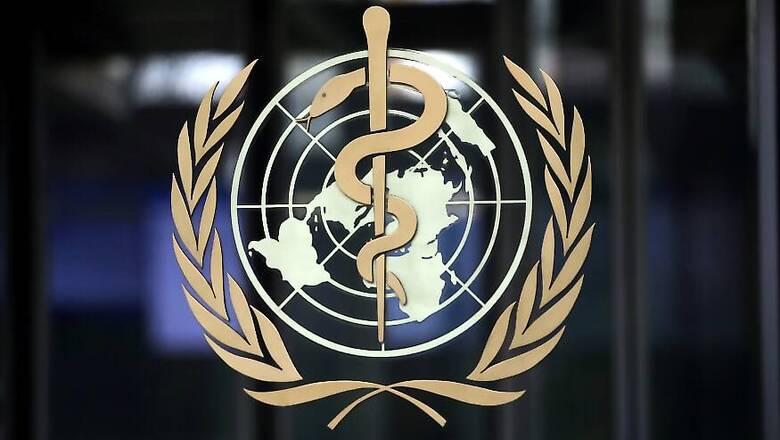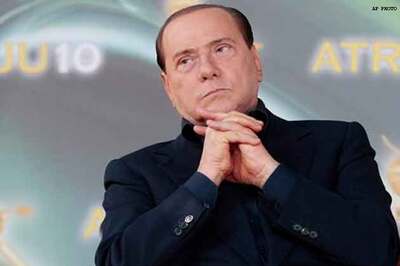
views
The World Health Assembly, the decision-making body of the WHO, is set for a crucial virtual meeting next week from May 18. The meeting assumes significance in the backdrop of the Covid-19 pandemic and the push from the United States to investigate the World Health Organisation for its failure to warn the world in time and showing a “dangerous bias” towards China.
Significantly, India will be taking over the chair of the WHO executive board soon. The 73rd World Health Assembly virtual meeting will take place from May 18-19 and the Executive Board, comprising 34 countries, will meet on May 22. With this, India could play a major role in fixing accountability and seeking answers.
The World Health Assembly is held annually in Geneva, Switzerland. The main functions are to determine the policies of the WHO, appoint the Director-General, supervise financial policies and review and approve the proposed programme budget.
The Director General of WHO, Dr Tedros Adhanom Ghebreyesus, has come in for sharp criticism over the pandemic. He is slated to address the Assembly specifically on Covid-19. The Executive Board election will also be held at the meeting where India is expected to be elected as a member for three years and chair for one year.
Interestingly, US Secretary of State Mike Pompeo held a videoconferencing with foreign ministers of six countries on Monday – this included the three other countries in “the Quad” namely India, Japan, Australia along with South Korea, Israel and Brazil.
The readout from the US clearly indicated that Secretary Pompeo raised the matter of holding China and the WHO accountable. State Department spokesperson Morgan Ortagus said, “Secretary Pompeo and his counterparts discussed the importance of international cooperation, transparency and accountability in combating the Covid-19 pandemic and in addressing its causes.” The readout also mentioned “the importance of rules-based international order,” once again an indication towards China.
Australian foreign minister Marise Payne tweeted to say: “Transparency and learning the lessons of this pandemic are critical to prevent future global health crisis”, while South Korea’s foreign minister Kang Kyung-wha also emphasised the importance of swiftly and transparently sharing information.
However, India’s external affairs minister S Jaishankar only tweeted to say that the conversation covered “pandemic response, global health management, medical cooperation, economic recovery and travel norms”. There was no indication from the Indian side about its view on China with regards to the pandemic.
On the question of US suspending funding to the WHO, India has not made any on-record official remark but government sources have said that at present, efforts and attention are fully focused on dealing with the pandemic. “Once the world has addressed the crisis, we can revisit the question,” they said.
Strategic analyst Brahma Chellany believes that China has stepped up aggressive moves against India and Japan ahead of this crucial meeting. He said, “The West will seek an inquiry into the origins of the coronavirus. It appears China is warning India and its other neighbours not to support the Western move.”
In a speech on Monday to MIT World Peace University, Pune, Foreign Secretary Harsh V Shringla said, “I worry about biosecurity. The management of public health emergencies, including pandemics, has been an important item in the global health governance agenda. The international community has been working on this for a long time. The current crisis demonstrates that in spite of this common understanding and coordination, major gaps exist.”
Prime Minister Narendra Modi, while participating in the G20 virtual summit on March 26, had also sought reforms in the WHO. He said the organisation needs to rise to the challenges of the present century.
It is clear that India seeks not just requisite changes in the multilateral organisation but at some stage would seek accountability too. However, it will be a tightrope walk for New Delhi while it refrains from antagonising and riling up its neighbour China, which is cornered over the pandemic and its global economic fallout.




















Comments
0 comment